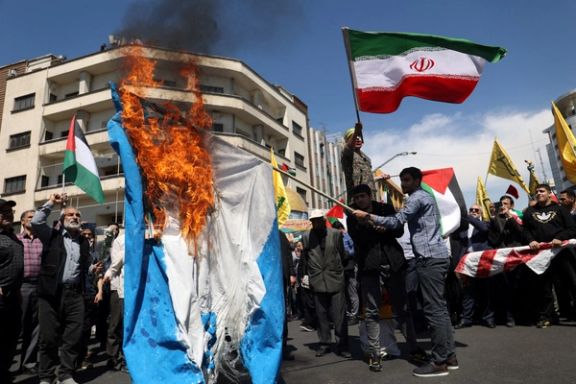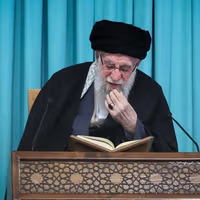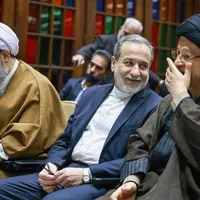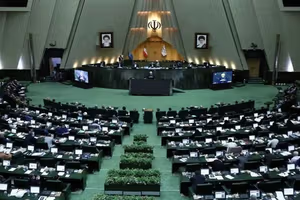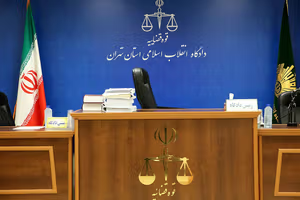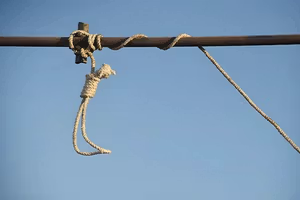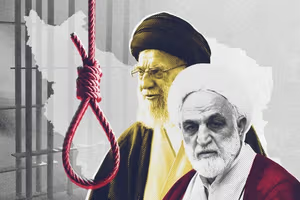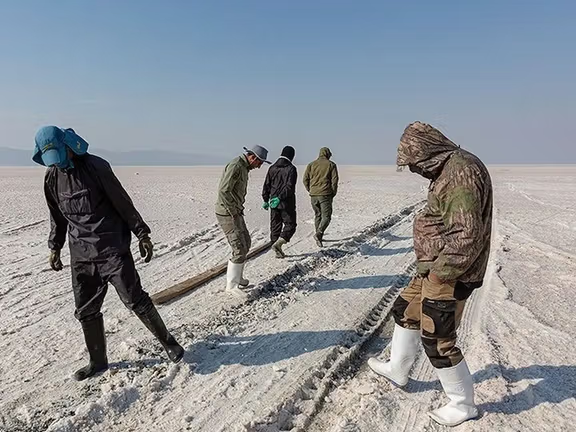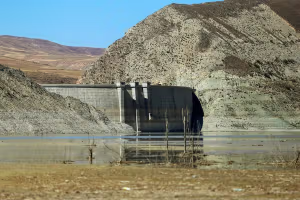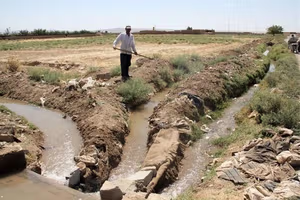In a letter to UK Foreign Secretary Yvette Cooper from prisons in Rustavi, south-east of Tbilisi, seven politicians warned of what they called an “unprecedented expansion” of Iranian influence in Georgia.
They wrote: “We … respectfully urge you to consider extending sanctions to these individuals, their entities, and their family members, to ensure they can no longer enjoy the benefits of the UK’s democratic society while working to erode it.”
As evidence, the letter cited solidarity expressed by Deputy Foreign Minister Aleksandre Khvtisiashvili at Iran’s embassy after US strikes on nuclear facilities, and Prime Minister Irakli Kobakhidze’s recent visit to Tehran, where, they said, he “stood alongside leaders of Hamas and Hezbollah as chants of ‘Death to America’ echoed.”
The politicians -- including Zurab Japaridze, leader of the pro-EU Girchi–More Freedom party -- also accused Georgian Dream and its founder, billionaire Bidzina Ivanishvili, of “full state capture” and compared conditions to Russia, alleging more than 60 political prisoners and violent crackdowns on protests.
“More than 500 peaceful demonstrators … were brutally beaten, including many who suffered broken facial bones,” they wrote.
Imedi TV, Georgia’s most-watched broadcaster owned by London-based Hunnewell Partners and named in the letter, rejected the claims as “unfounded,” saying it was independent and allowed vigorous debate.
“Being sympathetic to Georgian Dream is not a crime,” a spokesperson said. “We strongly reject the allegation that Imedi TV is a propaganda outlet.”
Georgian Dream, which says it is pro-European, has been accused by critics of realigning the country with Moscow’s interests and eroding democratic standards.
The UK has previously sanctioned Georgian judges and politicians, as well as media figure Levan Vasadze for spreading pro-Russian disinformation. The opposition leaders said London’s measures had “real impact” but called for wider action against Ivanishvili’s network.
In July, US-based defense policy think tank Jamestown Foundation wrote of the growing ties between Tbilisi and Tehran, with trade and commerce a key incentive to the former Soviet state.
“Georgia’s Deputy Foreign Minister Alexander Khvtisiashvili expressed solidarity with Iran following the Israeli airstrikes, sparking outrage from the Israeli Embassy and raising domestic accusations of Georgian Dream acting as a regional proxy for Tehran," its author, Beka Chedia, wrote.
“Russia is intensifying efforts to pull Georgia into strategic regional frameworks, positioning Iran as a key partner, which aligns with Georgian Dream’s pivot away from the West. Iran’s connectivity and economic presence in Georgia has been rapidly growing under Georgian Dream, marked by a surge in Iranian companies, residents, and trade.”
Data from the National Statistics Office of Georgia says that over the past 10 years, 10,000 Iranian citizens have arrived in Georgia for permanent residence and following the rise to power of Georgian Dream, the number of private companies established in Georgia by Iranian citizens has increased significantly.
Jamestown Foundation research says that in 2010 there were only 84 Iranian companies registered in Georgia but between 2013 and 2024, 9,300 were registered, including 125 new companies registered in 2025.
In the wake of US sanctions against Iran, Georgia has also become a key market for Iranian goods such as food, plastic products and construction materials. Of the total trade turnover of $322 million between Georgia and Iran in 2024, $285 million was imported products from Iran to Georgia.
Georgian NGO Civic IDEA reported earlier this year that “as diplomatic ties between the Georgian Dream government and Iran have grown closer, several Georgian-registered companies have emerged with direct links to Iran’s Ministry of Defense and the Armed Forces Logistics Agency.”
The NGO said: “Iranian businessmen are using Georgia as a strategic transit point to evade international sanctions and channel funds back to the Islamic Republic of Iran.”
